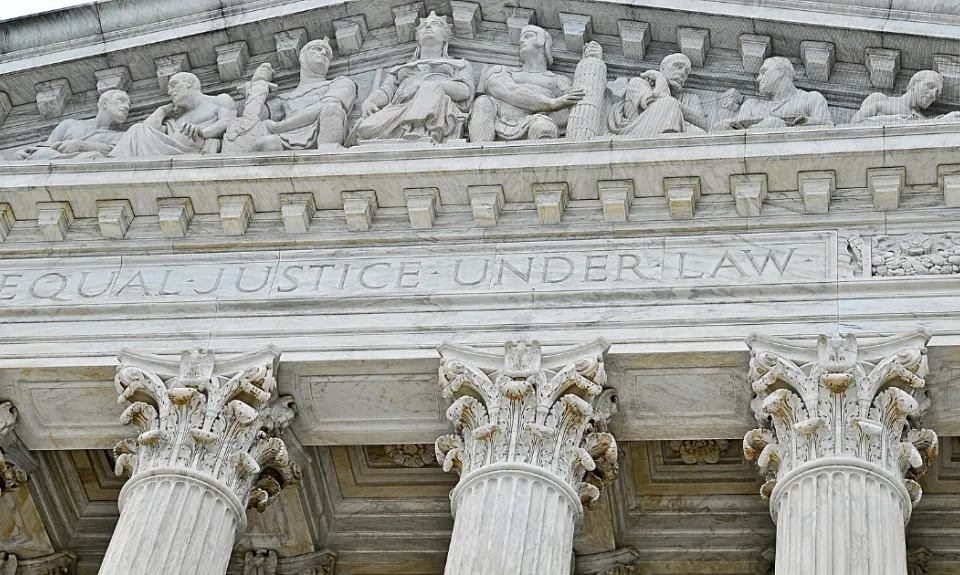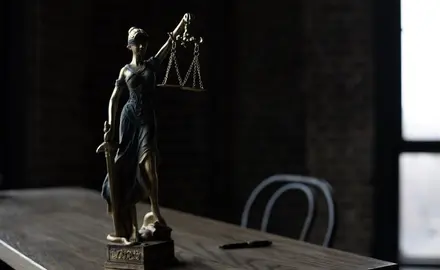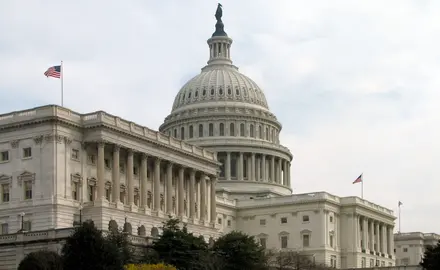In the last term, the MAGA-dominated Court handed down a series of devastating rulings. Among other things, it ruled that presidents and former presidents have expansive immunity from prosecution for acts they claim were part of their official duties in office. The Court also made it easier for insurrectionists to hold office in spite of longstanding legal prohibitions. With the election looming and MAGA operatives preparing to challenge any result unfavorable to Donald Trump, there are serious concerns about what the Court might do if it is called upon to adjudicate election results.
Meanwhile, it has already announced nearly 30 cases that it is expected to decide by the end of June 2025.
"The 2016 presidential election gave us this MAGA Supreme Court, and now we're living with the long-term fallout," said Svante Myrick, president of People For the American Way. "With Donald Trump on the ballot again this November it's never been clearer how much elections matter when it comes to who sits on our federal courts. We have to remember that when we go to the ballot box this fall, our choices will determine whether we get courts and judges that uphold all our rights, or more Trump judges who are willing to shred rights, the law and even the Constitution if that gives Trump and his MAGA cronies what they want."
"It's chilling to look ahead to all the ways this MAGA Supreme Court could continue to damage our democracy and undermine our freedoms in this term," said Paul Gordon, senior legislative counsel and an author of the report. "One big unknown is whether the far-right justices will help Donald Trump undo the election results if he loses again. Even if that doesn't happen, the Court will be deciding cases that will have serious impacts for the transgender community, the environment, gun safety, and Americans pursuing their civil rights. There's a lot of anxiety about what the outcome will be."
"We're deeply concerned about this upcoming Supreme Court term," said Elliot Mincberg, senior fellow, who contributed to this report. "The far-right justices have proven themselves to be unconscionably partisan and ethically challenged, and it's hard to imagine our rights and freedoms in more unreliable hands. Our role as advocates is to shine a light on the Court and let justices know that Americans are watching. Our role as citizens is to vote in this election and every election for a president and Senate that will nominate and confirm principled judges with a deep commitment to civil rights and the law, and we have that chance this fall."
SUMMARY OF HIGHLIGHTED CASES:
Transgender Equality:
United States v. Skrmetti: (Oral arguments TBD) The Court will decide the constitutionality of laws making it illegal to give transgender minors critically important gender-affirming care. The justices may also decide if laws harming transgender people trigger heightened judicial scrutiny like laws discriminating on the basis of sex. The case revolves around a Tennessee law that prohibits the use of puberty blockers and hormone therapy for minors if the purpose is to treat gender dysphoria, which the Biden Administration argues violates the Constitution's Equal Protection Clause. Oral arguments have not yet been scheduled.
Gun Violence:
Garland v. VanDerStok: (October 8) The justices will decide whether to exempt untraceable "ghost guns" from federal firearm safety laws. "Ghost guns" are an effort to get around common-sense safety measures adopted by Congress. They do not have serial numbers and are untraceable. Trump judges in the Fifth Circuit have ruled that ghost guns built from kits don't meet the definition of firearms under federal law and cannot be regulated under current law. If the far-right justices concur, they may use this case as an opportunity to create a gaping hole in firearms safety laws.
Civil Rights:
Lackey v. Stinnie: (October 8) In a case about attorneys' fees, the majority may make it harder for people whose civil rights have been violated to afford to go to court. Federal law allows the winner of a civil rights lawsuit to have the losing side pay their legal fees. This case revolves around whether that rule can apply if one side has a strong enough case to obtain a preliminary injunction in their favor, or if only a final ruling allows them to have their fees paid. If the justices rule that a final judgment is needed to be awarded attorneys' fees, it will become harder for those who have had their civil rights violated to find lawyers willing to represent them even when their case is strong.
Disability Discrimination:
Stanley v. City of Sanford, FL: (Oral arguments TBD) The justices will decide if people with disabilities can sue their former employers for discrimination in providing post-employment benefits. Under the Americans with Disabilities Act (ADA), employers may not discriminate against "a qualified individual" on the basis of their disability. This case involves a former employee with a disability who alleges that limits on her retirement benefits violate the ADA. The employee was denied an important fringe benefit, a subsidy for retirees to cover their health insurance up to age 65, when she was forced to retire early due to a disability.
Protecting the Environment:
Seven County Infrastructure Coalition v. Eagle County: (Oral arguments TBD) The justices may weaken the requirement that federal agencies analyze the environmental impacts of their actions. The case involves a railroad company and several counties in Utah that want to build an 80-mile railway to connect a basin rich in natural gas, oil, and other hydrocarbon deposits to an existing rail line. The builders obtained project approval with an Environmental Impact Statement from a federal agency that did not take into account pollution and other impacts that it did not have direct responsibility to regulate. If justices agree that's sufficient, it would let federal agencies ignore important environmental impacts of their actions.
San Francisco v. EPA: (October 16) The majority may take away a tool used by the EPA to protect our water from toxic pollution. This case involves the EPA's permit for one of San Francisco's water treatment plants. The permit caps the permissible amount of certain pollutants within water discharged from the plant. It also requires that the water where the discharge goes must meet certain standards, which the city says goes too far. If the justices agree, it could severely limit how the EPA protects water quality.




